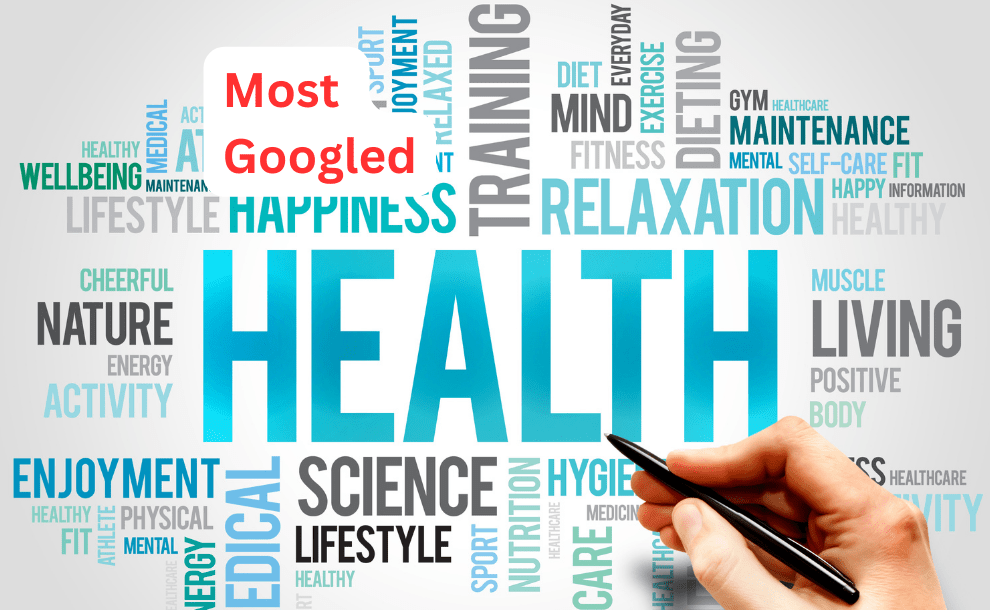In an era where the entire world is just a click away, it isn’t surprising that Dr. Google often becomes our first point of consultation when we feel unwell, or we have health-related queries. However, it’s important to remember that not all resources online are credible, and it’s always a good idea to turn to reliable resources or professionals. Today, we delve into the top 15 most googled questions related to medicine.
1. What is the Common Cold?
Common cold isn’t just a vague term we use for a runny nose and a headache. It refers to a viral infection primarily affecting the nose and throat.
Common Causes
- Rhinovirus
- Coronaviruses [not including SARS-CoV-2]
- Respiratory syncytial virus (RSV)
Remember, always rest and hydrate when you’ve got a cold. Antibiotics can’t ‘kill’ a cold, they’re for bacterial infections, not viral ones.
More information on common cold
2. What Causes Headaches?
Headaches are no fun, and they aren’t always because of dehydration or lack of sleep. They can stem from medical conditions like migraines or tension headaches.
Frequent Triggers
- Stress
- Certain foods
- Lack of sleep
Regular exercise, reducing stress, and monitoring your food and caffeine intake could keep headaches at bay.
3. Do I Have the Flu, or is it Just a Cold?
Influenza (flu) and the common cold are both respiratory illnesses but are caused by various viruses.
Key Differences
- Cold symptoms usually develop slowly while flu symptoms often come on suddenly.
- Common cold rarely results in serious complications. Both can be severe, but the flu tends to lead to more alarming conditions such as pneumonia.
If symptoms are severe or persist beyond a week, consult your healthcare provider.
4. What Causes Allergies?
There’s an array of allergens in our environment that our immune system occasionally misinterprets as harmful.
Common Allergens
- Dust
- Animal dander
- Certain foods
- Pollen
Allergies are the immune system’s over-reaction to harmless substances. Always avoid known allergens and take your prescribed medications.
5. What are the Symptoms of Pneumonia?
Pneumonia is a chest infection, where the small air sacks in the lungs fill up with liquid caused by a bacterial, virus, or fungus invasion.
Key Symptoms
- Difficulty breathing
- Productive cough
- Chest pain
Pneumonia can be life-threatening. Consult your doctor immediately if you suspect it.
More about symptoms of Pneumonia
6. How is Diabetes Diagnosed?
Insufficient insulin production or improper use of insulin leads to high blood sugars, or diabetes.
Common Symptoms
- Frequent urination
- Unexplained weight loss
- Constant thirst
Diabetes is an ongoing condition. With lifestyle changes and proper management, quality of life can be improved significantly.
7. What is the Cause of Hypertension?
Hypertension, or high blood pressure, is often “hidden” as it may show no symptoms. Lifestyle and genetic factors contribute to hypertension.
Common Causes
- Sedentary lifestyle
- Obesity
- High Sodium intake
Regular health check-ups are essential to ensure your blood pressure stays in the normal range.
8. How to Recognize a Heart Attack?
Recognizing a heart attack in time can save a life.
Typical Symptoms
- Chest discomfort
- Lightheadedness
- Shortness of breath
Remember, heart attack symptoms can vary. It isn’t always an elephant on the chest!
More about Heart Attack recognition
9. What are the Symptoms of Anxiety?
Anxiety’s not just feeling nervous, it’s a serious mental health condition.
Common Indications
- Constant feelings of worry
- Difficulty concentrating
- Trouble sleeping
If you suspect you’re experiencing anxiety, never hesitate to speak up and ask for help.
10. What Does Skin Cancer Look Like?
Early detection of skin cancer can enhance the outcome significantly.
Prominent Signs
- New growth on the skin
- A sore that doesn’t heal
- Changes to existing moles
An annual skin exam by a dermatologist is a safe bet.
More about Skin cancer detection
Other common medical queries include “How do vaccines work?”, “Are antibiotics safe?”, “What causes Depression?”, “Does exercise aid in weight loss?”, and “How to cope with stress?”
Whether you’re searching for the cause of a headache or the symptoms of a more serious illness, always turn to trusted medical websites, and consult with healthcare professionals. The internet is an amazing resource, but it cannot replace personalized advice from someone who knows your unique medical history. It’s also essential to remember that it’s okay not to know everything. Albert Einstein said, “The more I learn, the more I realize how much I don’t know.”



